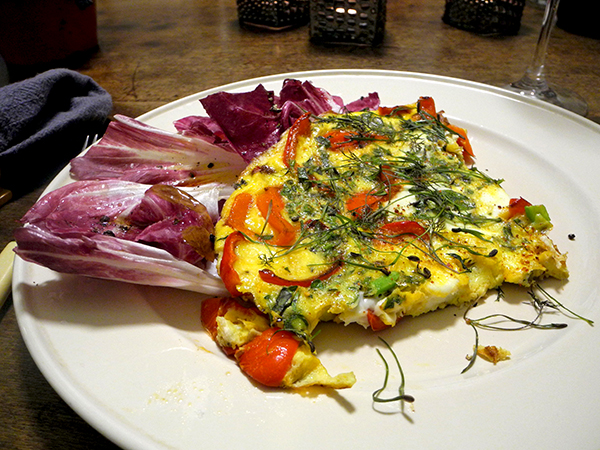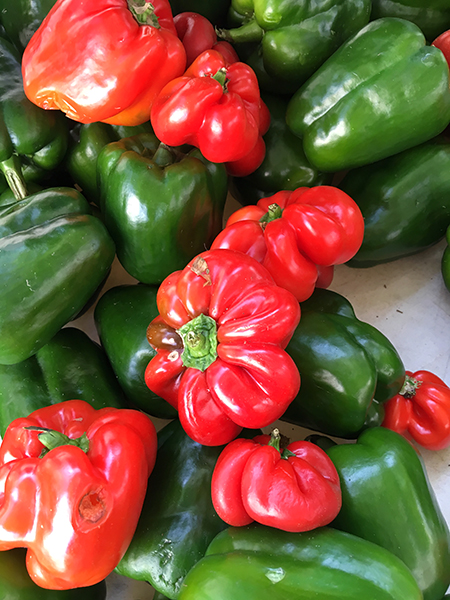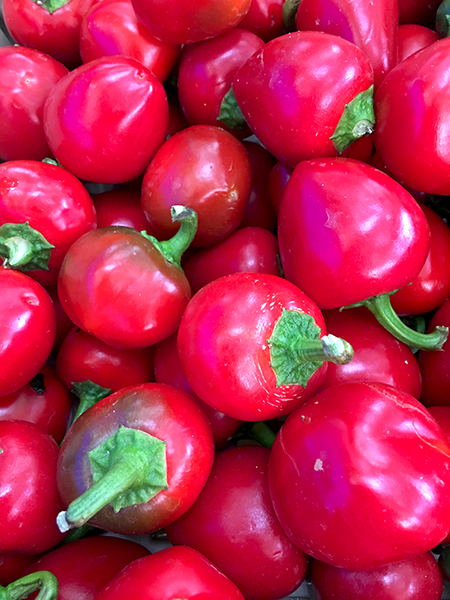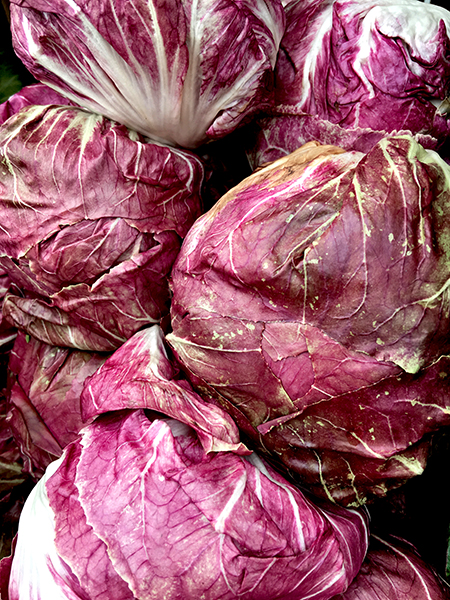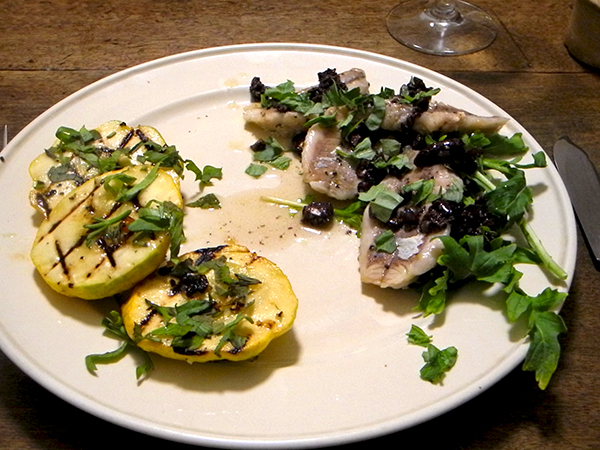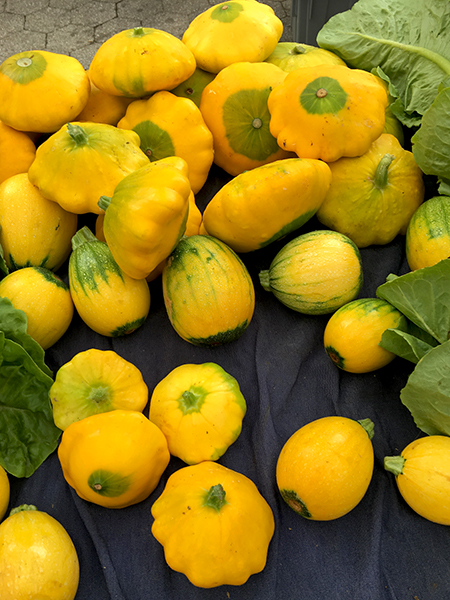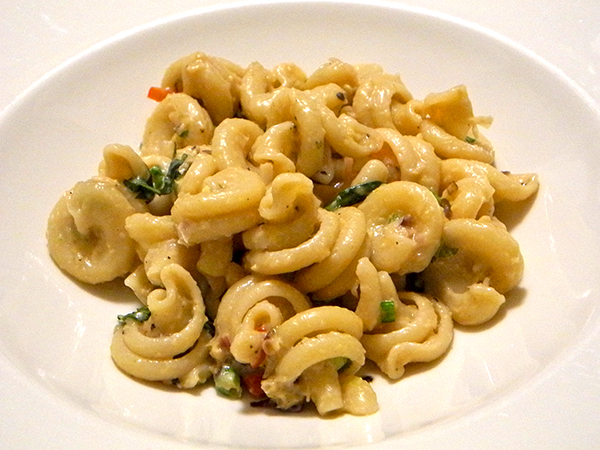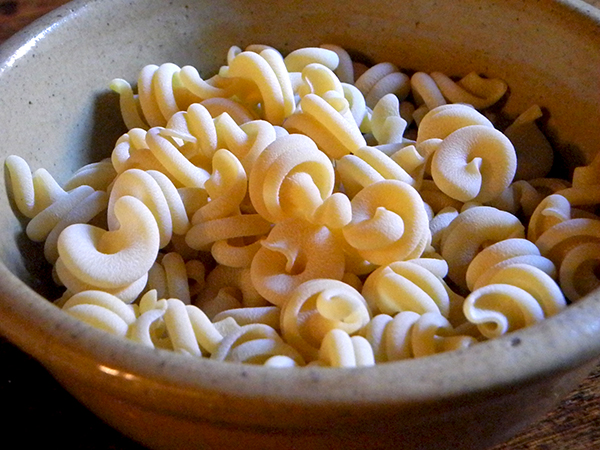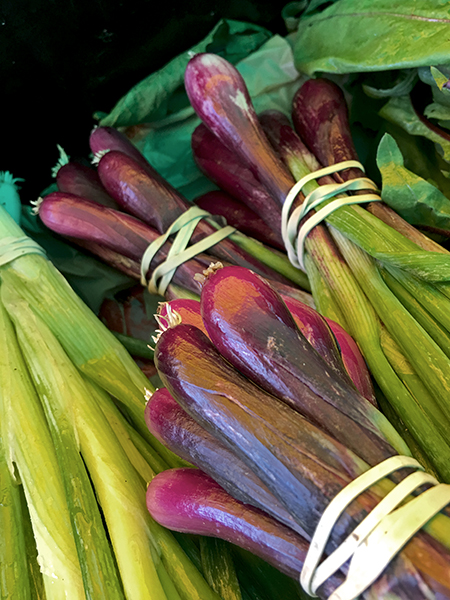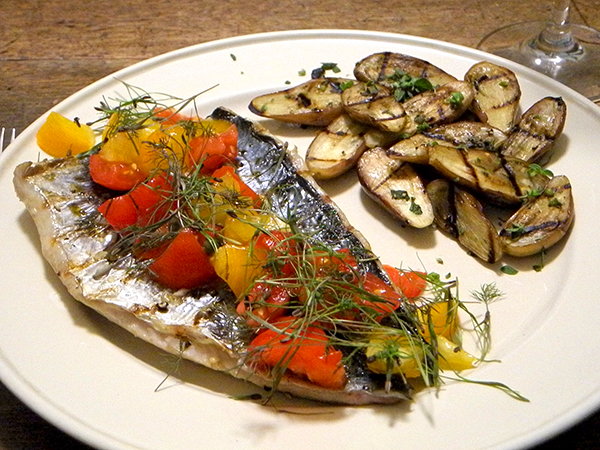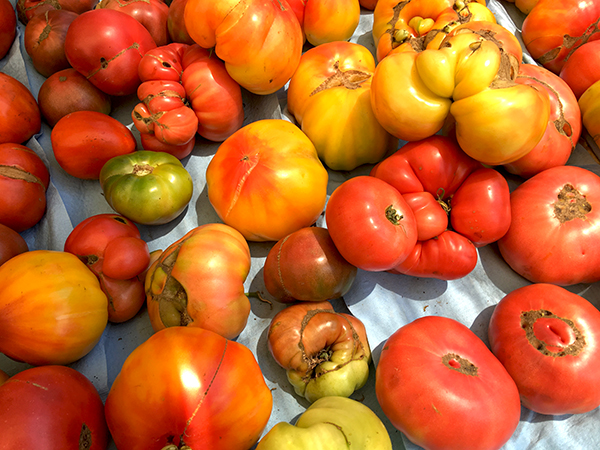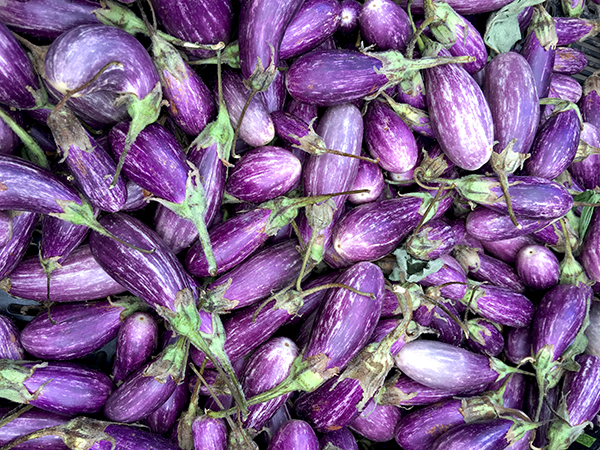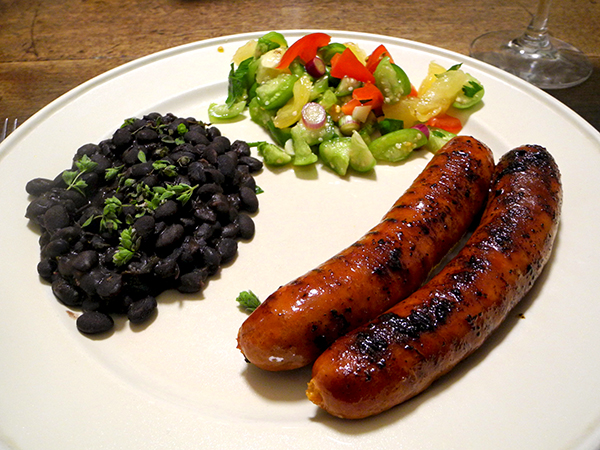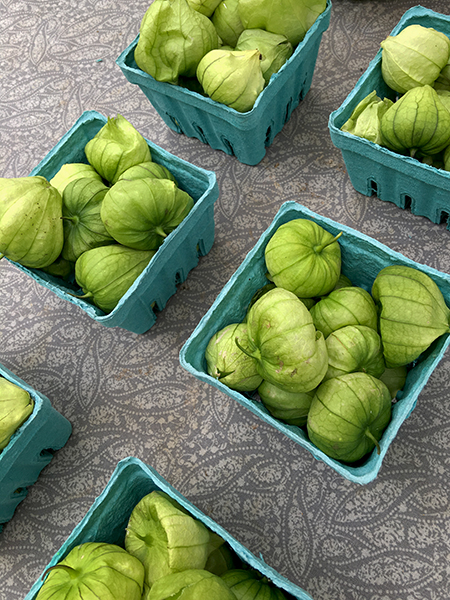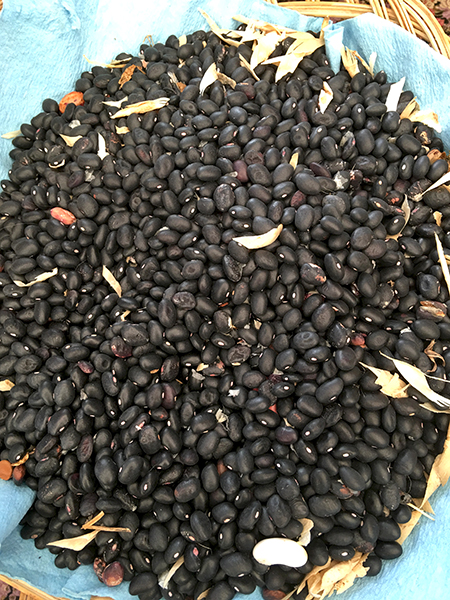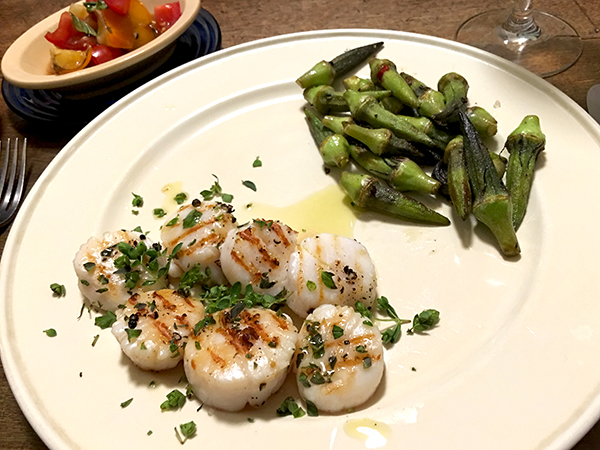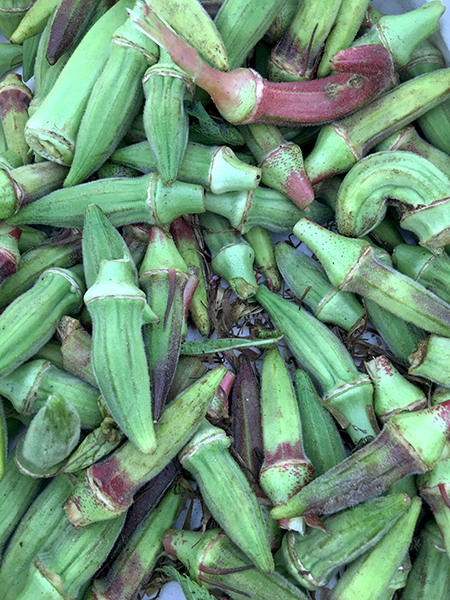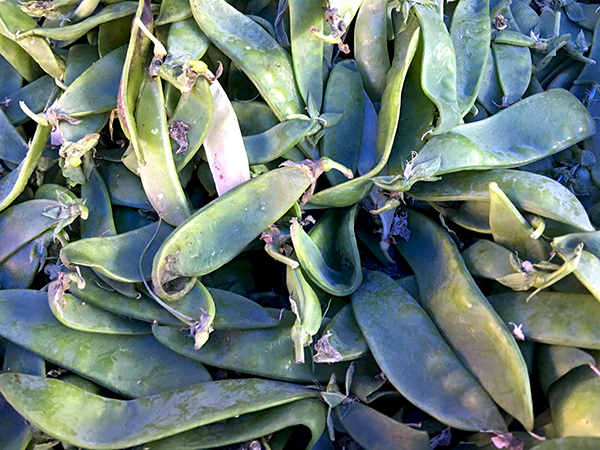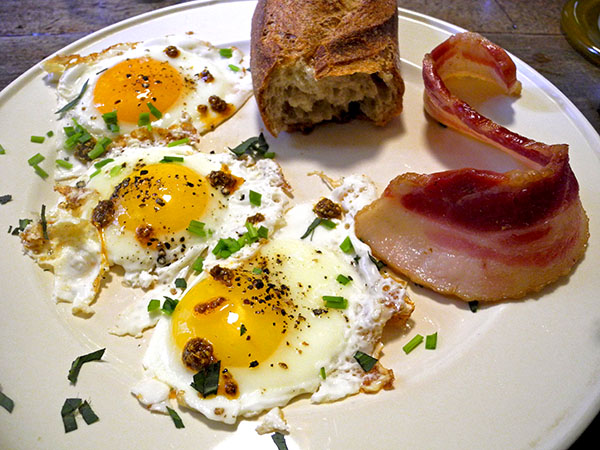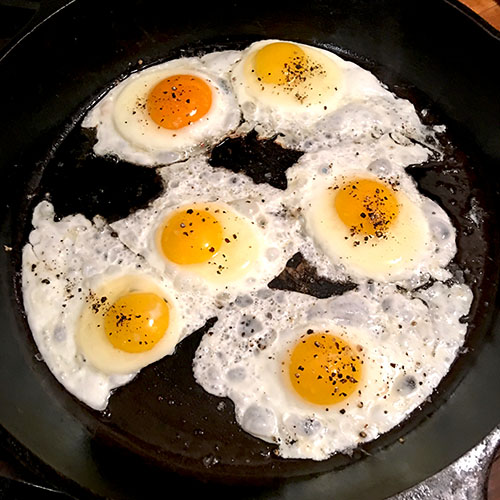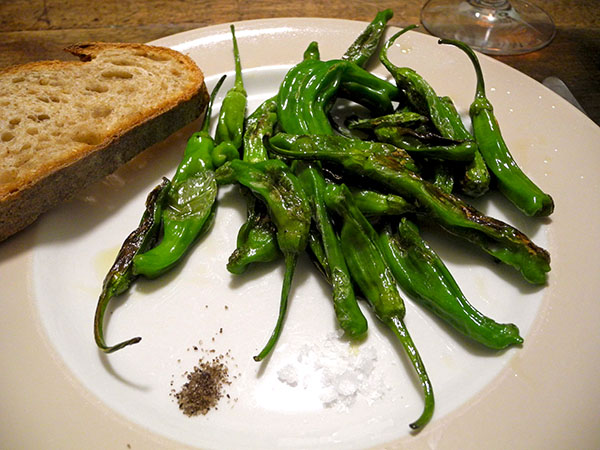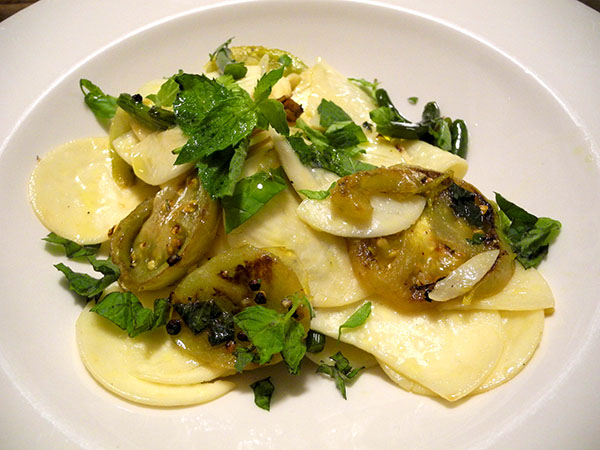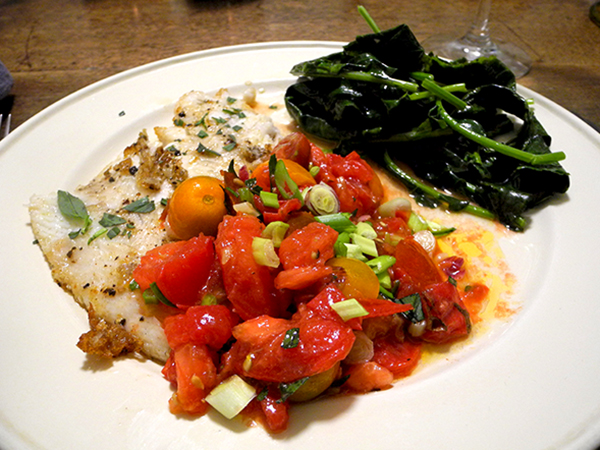
Home alone. I don’t always cook a proper meal for myself on the rare occasions that happens, and unfortunately I hadn’t arranged to share my meal with a friend. But at least by Monday morning I had thought ahead enough to purchase some very fresh fish for 2 successive meals, one solo (the Union Square Greenmarket isn’t open on Tuesdays).
That night, before I actually began thinking about what I would do with my one flounder fillet, I had assumed that whatever I did it would be very minimal, and end with an unusual herb or micro green. Then I noticed that a few of the heirloom tomatoes on the breakfast room windowsill had become as ripe as they could possibly get, so I turned to an only-slightly-more-complex recipe I had used a number of times in the past, and I jumped off from there, with a few variations.

I have usually used good cherry tomatoes for the ‘butter’, but the version I composed last night included very ripe heirlooms, almost entirely, and I think it was the best one yet.
Note: After the photo at the very top was taken, I drizzled some of the tomato liquid onto the exposed fillet, and it was ambrosial!
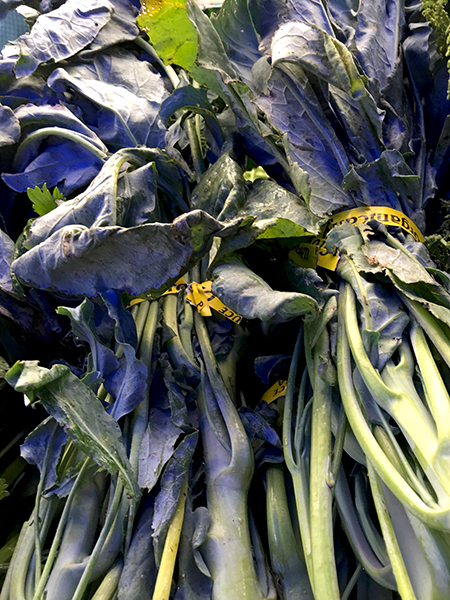
The spigarello broccoli was absolutely delicious, and unlike any green I had ever tasted. I generally prefer not to parboil any leafy vegetable, and did so reluctantly in this case, since I was a little concerned about the sturdiness of the stems, even though I had cut off most of them. Unfortunately I drained the spigarello after only about 3 minutes, which wasn’t quite enough to soften them; the next time I will test them while they’re boiling (or be sure to remove all of the stem, even if I have to admit the stems look pretty cool on the plate).
The leaves, by the way, are probably sturdy enough to survive a longer blanching without losing their own freshness. I wonder how that excellent design came about? I didn’t squeeze the greens after they had been drained and before they were sautéed, mostly because I didn’t have a ton, and didn’t want them to disappear before I got them to the plate.
- one 7-ounce Long Island-waters flounder fillet from P.E.&D.D. Seafood, lightly seasoned, cooked for a few minutes in olive oil and butter in a heavy oval copper pan over high heat, turning once, then placed on a plate, a couple of spoonfuls of ‘tomato butter’ [see below] placed on top
- tomato butter, made by cooking, until slightly soft and fragrant, a couple sliced fresh red scallions from Hawthorne Valley Farm in a generous amount of butter, then letting the flavored butter cool slightly before being poured over three different small, fresh, very ripe heirloom tomatoes from Norwich Meadows Farm, chopped, and 4 halved sun gold cherry tomatoes from Down Home Acres, then combined with a tablespoon of tarragon, chopped, from Stokes Farm, and seasoned with salt, pepper, and a few drops of good red wine vinegar
- spigarello (Cavolo Broccolo a Getti di Napoli, or Minestra Nera) from Norwich Meadow Farm, stems removed, blanched for about 2 minutes, drained, sautéed (mostly just heated) in olive oil in which one chopped garlic and a small amount of a chopped cherry bomb/red bomb pepper from Norwich Meadows Farm had first been softened (a sprinkle of a little lemon juice and a drizzle of olive oil might have been in order after they were arranged on the plate, but I did neither this time
- the wine was a California (grapes from the Sacramento River Delta with a small amount of Viognier from Lodi) white, Miriam Alexander Chenin Blanc 2014
- the music was an album of works by Mateusz Ryczek, ‘Planetony’
